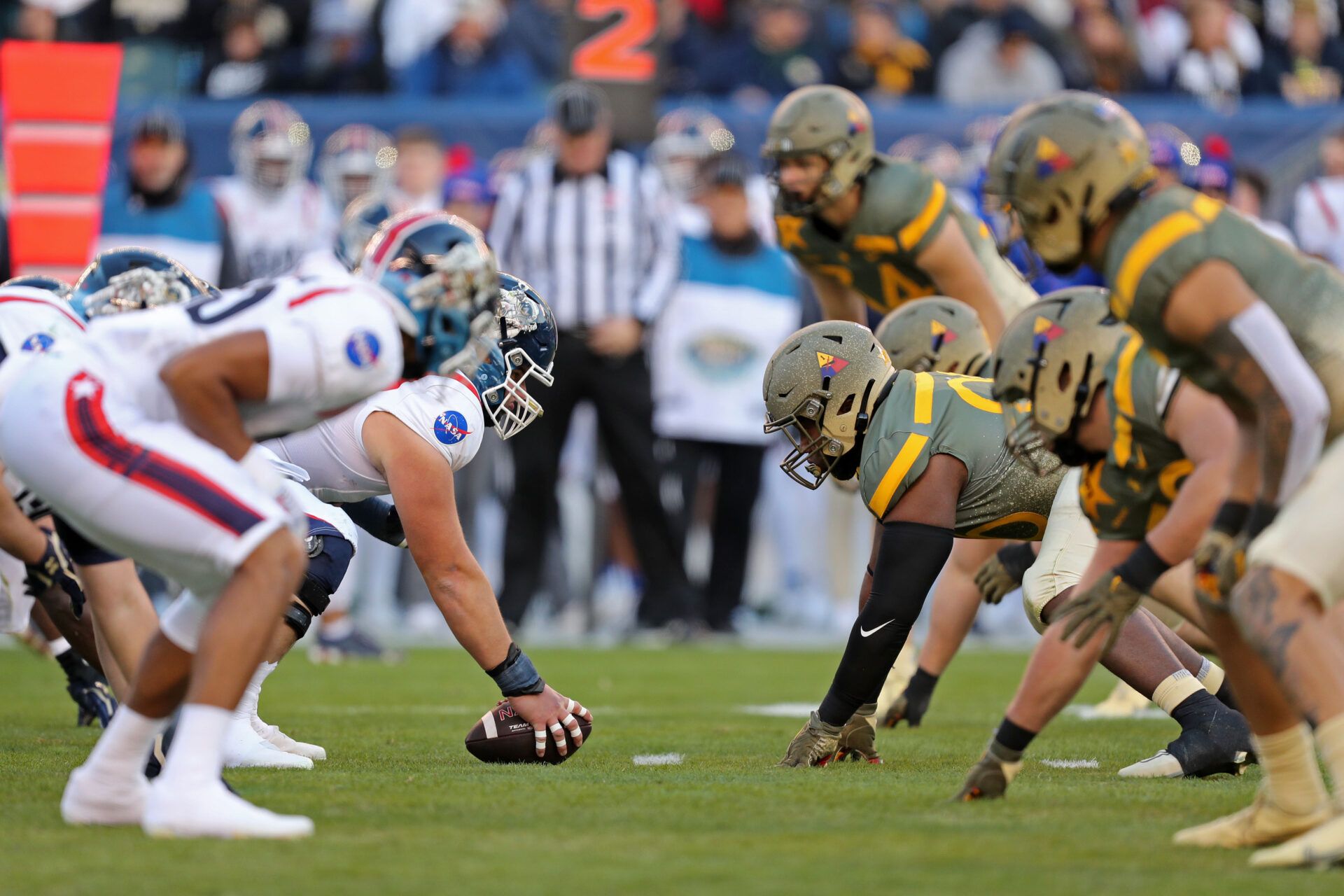Only a handful of players from the revered annual Army-Navy game have gone on to play in the NFL. Despite a slew of quality players from each service academy, the last-drafted Army or Navy prospect to be drafted was Malcolm Perry in 2020. After seeing Army star defensive end Andre Carter II go undrafted in 2023, many have asked whether Army and Navy prospects can be drafted.
We’ll dive into the new Armed Forces waiver that was put into place by former President Donald Trump and where it stands today.
Newest Congressional Bill Limits Army-Navy Prospects
In Dec. 2022, Congress passed the United States Armed Forces’ annual budget. The updated language prevents service academy athletes, such as those from the Army, Navy, and Air Force, from deferring their mandatory two years of active-duty service after graduation.
It reads, in part: “Agreement by a cadet or midshipman to play professional sport constitutes a breach of agreement to serve as an officer.” Once signed into law, the change would take place effective immediately. The bill was then passed by the House of Representatives and the Senate and was signed by President Joe Biden.
In recent years, there have been policy changes that have affected service academy athletes. For example, Keenan Reynolds, who was drafted by the Baltimore Ravens in the sixth round in 2016, was able to defer his service due to a policy change made during the Obama administration.
The United States Department of Defense reversed its previous decision to allow athletes to delay their required two years of service. As a result, former Air Force football players Jalen Robinette and Weston Steelhammer were barred from deferring their service.
It is quite uncommon to find service-academy athletes in professional sports, particularly in the NFL. Out of all the former Army players, only five have played at least one game in the 2020 NFL season. Alejandro Villanueva, a former offensive tackle for the Pittsburgh Steelers and Ravens, is one of them.
During the same period, only three former Air Force players, most notably tight end Garrett Griffin who spent six years with the New Orleans Saints and is currently on the Detroit Lions’ practice squad, and four former Navy players, including New England Patriots long snapper Joe Cardona, have had the opportunity to play in the NFL.
Donald Trump’s Order Allowed Armed Forces Prospects To Defer Service
In 2019, President Trump directed the Pentagon to revise a policy that permitted athletes to postpone their mandatory active service to pursue professional sports immediately after graduating from military academies. As a result, athletes at these academies can now request a waiver to delay their active service obligation and pursue professional sports opportunities right after graduation.
“These student-athletes should be able to defer their military service obligations until they have completed their professional sports careers,” Trump wrote in a presidential memorandum.
According to the previous policy of the Department of Defense, students enrolled in military academies were prohibited from playing sports until they had completed at least two years of active service in the armed forces. In his memo, Trump argued that this rule deprived some student-athletes of the opportunity to showcase their talents during the brief window of time they have in college.
Under the Obama administration, athletes from military academies were allowed to join sports teams after graduation if they were granted reserve status. However, in 2018, the Trump administration’s defense department revoked this policy.
The Pentagon officials argued that successful professional athletes, such as Roger Staubach, who won the 1963 Heisman Trophy and was a Naval Academy graduate, completed at least 25 months of service before playing sports. Staubach himself served in Vietnam before becoming a professional football player.

